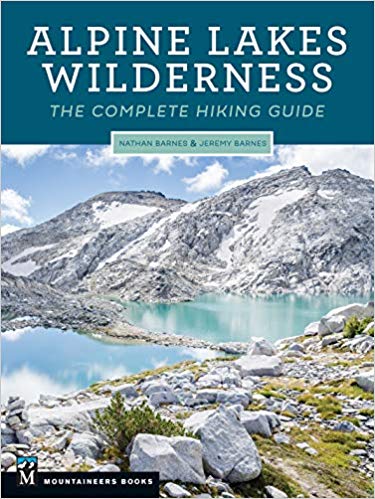Rialto Beach to Hole-in-the-wall
Explore the easily accessible Rialto Beach, a rocky, log-covered stretch of shore featuring an ocean carved headland passage known as Hole-in-the-Wall.
Total Distance: 3.4 miles
Total Ascent: 0ft
Highest Point: 0ft
Total Ascent: 0ft
Highest Point: 0ft
Difficulty: Easy
Our Hiking Time: 1h 45m
Required Permit: None
Our Hiking Time: 1h 45m
Required Permit: None
To get to there, take the Bainbridge Island ferry to Bainbridge Island. From the terminal, follow SR 305 for 13 miles to SR 3 North. Follow SR 3 to the Hood Canal Bridge, taking a left over the bridge onto State Route 104. Follow SR 104 as it merges onto US 101 and continue 35 miles to Port Angeles taking a left on Lincoln Street, which becomes US 101. Continue for about 54 miles to the junction to La Push Road, also known as SR 110. Turn right and continue on SR 110 for 7.8 miles to Mora Road. Veer right and continue another 5 miles to the road end and the parking area. View Google Directions >>
The hike begins from the Rialto Beach parking area, following a sandy path through a stand of windswept trees. After clambering over the piles of driftwood that have collected at the edge of the beach, you'll emerge onto the pebbled shore. Head right, skirting the edge of the Pacific as your boots crunch and sink into the beach. Keep an eye out for wildlife - it is common to see a variety of birds and sea life. After about .9 of a mile reach Ellen Creek, a fairly wide and swift stream flowing into the ocean. Depending on the tide and the conditions, you may be able to find a log crossing. If not, you may get a little wet scampering across. Note that dogs are not allowed beyond Ellen Creek.
Once you’ve forded the stream, continue another .8 mile to Hole-in-the-Wall. Only accessible at low tide, this arch provides access through the headland to the beaches beyond. Take some time to explore the tidepools here, as they are brimming with marine life, including seastars, anemones, and crabs. Once you’ve had your fill of Hole-in-the-Wall, head back toward the parking area and marvel at how much the shifting tide has changed the beach.
If you’ve never made it out to one of the many beaches on the Olympic Coast, Rialto Beach makes a great first impression. Short on distance and easily accessible, this hike allows any hiker to experience the rugged headlands and rocky shores common along this section of the coast. For those looking for something a bit more wild and less crowded, nearby Second Beach and Third Beach are excellent options.
Sometime after the turn of the last century, the beach was dubbed “Rialto” by a local celebrity, Claude Alexander Conlin, a magician and illusionist who rivaled Houdini in popularity. Known professionally as The Great Alexander, he used his fortune to buy land near the present day Mora Campground and built a large home that stood until it burned down in 1928. “Rialto” was a popular name for theaters at the time, and continues to be associated with theater and the performing arts.
Once you’ve forded the stream, continue another .8 mile to Hole-in-the-Wall. Only accessible at low tide, this arch provides access through the headland to the beaches beyond. Take some time to explore the tidepools here, as they are brimming with marine life, including seastars, anemones, and crabs. Once you’ve had your fill of Hole-in-the-Wall, head back toward the parking area and marvel at how much the shifting tide has changed the beach.
If you’ve never made it out to one of the many beaches on the Olympic Coast, Rialto Beach makes a great first impression. Short on distance and easily accessible, this hike allows any hiker to experience the rugged headlands and rocky shores common along this section of the coast. For those looking for something a bit more wild and less crowded, nearby Second Beach and Third Beach are excellent options.
History
Situated on land historically claimed by the Quileute Tribe, Rialto Beach was the location of the first encounter between the tribe and European explorers. In 1808, a Russian fur trader foundered on the beach, and the crew was attacked by Quileute tribesmen. While Russian firearms repelled the initial attack, a number of the crew were captured and held as slaves for roughly 18 months before the survivors were released to a Russian cargo ship. As the decades passed, Europeans continued to move into the area, and by 1881 the Quileute Reservation was created, which included Rialto Beach. However, storms in 1910 shifted the course of the Quillayute River, and with it the boundaries of the reservation. This marked the beginnings of a dispute between the tribe and Olympic National Park that threatened to affect the public's access to Rialto Beach. The dispute continued for decades, and it was not until 2012 that Congress passed legislation to settle the matter, assuring continued access to the beach.Sometime after the turn of the last century, the beach was dubbed “Rialto” by a local celebrity, Claude Alexander Conlin, a magician and illusionist who rivaled Houdini in popularity. Known professionally as The Great Alexander, he used his fortune to buy land near the present day Mora Campground and built a large home that stood until it burned down in 1928. “Rialto” was a popular name for theaters at the time, and continues to be associated with theater and the performing arts.
Nearby hikes
Similar Difficulty
Similar Features












